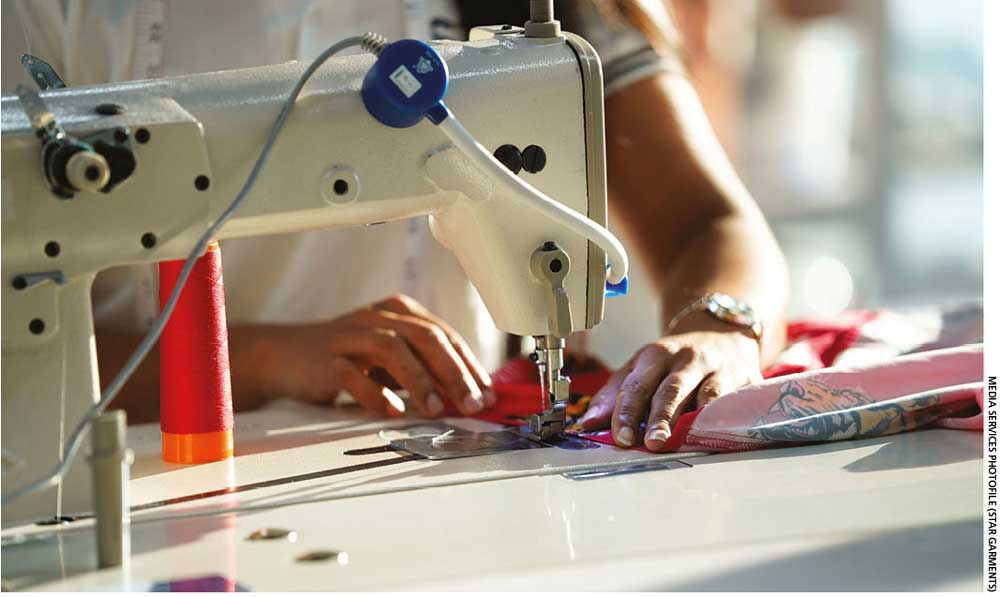 Q: In your opinion, what is the role of senior management in promoting an open and engaging culture?
Q: In your opinion, what is the role of senior management in promoting an open and engaging culture?
A: The senior management is the front-runner in dictating the culture of any organisation as they foster the culture that prevails across the firm.
For a company to be successful, it is vital that the senior management recognises the influence they hold and act to promote organisational values through the actions of their members. This will lead to greater employee engagement, thereby resulting in an effective and happier workplace.
Q: Do you believe that employees’ expectations of employers have changed as a result of the COVID-19 pandemic and economic crisis?
A: It’s not purely the pandemic and Sri Lanka’s economic crisis that have changed employee expectations. I believe that we are in the midst of a generational shift in the workplace.
My generation values different ideals from previous generations. Greater emphasis has to be placed on employee wellbeing, and making employees understand that they are valued and appreciated.
Additionally, this generation is one that values empowerment and the freedom to be allowed to demonstrate their skill sets, as opposed to a culture where one is shackled at a workplace and told what needs to be done.
The faster that organisations recognise this cultural transition taking place, the faster they can adapt to being successful.
I would be wrong to say that the pandemic has not influenced workplace culture. In fact, the appreciation for and adoption of flexible workplaces grew immensely due to the pandemic.
The word ‘flexibility’ applies both in terms of hours and location. This is now a prerequisite for certain functions in order to attract the best talent.
Q: The pandemic has come and gone but the changes to the work culture that it brought on seem to be here to stay. Is this sentiment true for your organisation as well?
A: At Star Garments, the pandemic opened our eyes to the possibilities that we as an organisation have to serve our customers and principals better.
The growth of remote workspaces allowed us to pitch service offerings that were previously considered job roles that had to be carried out in customer markets in the US and elsewhere.
During the pandemic, we were able to showcase how remote working did not only mean ‘within a country’ but that we could carry out certain functional service job roles from Sri Lanka to provide our clients with an end-to-end apparel solution instead of being purely an apparel manufacturer.
This led to the growth of a service arm in the organisation that works entirely different hours to the core manufacturing base – primarily working the same hours as our principals and customers, and essentially operating from individuals’ homes.
The transition and growth of this service sector meant we had to adapt our processes to facilitate working from home, and also learn the dos and don’ts of having part of the workforce working remotely.
 Q: Employee retention is a red-letter item on the agenda of many businesses in Sri Lanka today due to the unprecedented migration of working people. What has been your approach to retaining talent?
Q: Employee retention is a red-letter item on the agenda of many businesses in Sri Lanka today due to the unprecedented migration of working people. What has been your approach to retaining talent?
A: I believe that migration has always been present in various forms in the apparel industry. The global apparel industry has always utilised Sri Lankan talent to set up factories around the world – be it in South and Southeast Asia or Africa – which is a testimony to the apparel manufacturing know-how that we have in Sri Lanka.
Therefore, apparel manufacturers have always had to adapt to the challenges of their workforce migrating. In this context, I believe that two factors are key to employee retention.
Firstly, that one’s employees feel safe and protected. And the second is ensuring that one’s employees feel valued and empowered. The second facet I believe is becoming more and more important.
In order to be successful in empowering people, it is important that we as senior management take a backseat when it comes to control but take a front seat when it comes to accountability.
Building on this idea further, we need to let individuals feel free to make decisions and act on their thinking processes, without shackling them and putting them within a box.
At the same time however, if things go wrong, we need to be the ones at the forefront – taking on the responsibility for their decisions.
People should be allowed to make mistakes and be coached through them. This leads to employees who understand that they are valued, recognise that they are learning daily, and know they are empowered to act within the workplace.
– Compiled by Yamini Sequeira

Telephone: 4837000 | Email: info@star.lk | Website: www.star.lk





